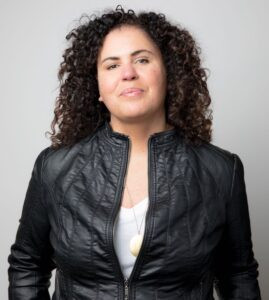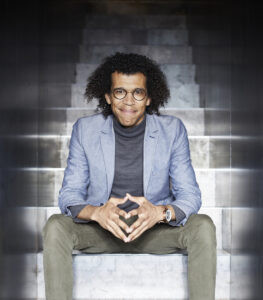10:10am - 11:00am
Roundtable Discussion on Gateway Science Courses (Hodson Hall 210)
This session will not be streamed at the panels request because of the difficult challenges that will be discussed.
Moderater: Tyrel McQueen, Professor, Chemistry (KSAS); Jamie Young, Lecturer, Chemistry (KSAS); Emily Fisher, Associate Teaching Professor, Biology (KSAS); Daniel Reich, Professor, Physics (KSAS); Corey Oses, Assistant Professor, Materials Science and Engineer (WSE)
Faculty across the natural sciences and engineering will share their experiences and unique challenges to gateway science courses, including the coordinating and training TAs, engaging students, helping students transition to undergraduate or graduate programs, and grading and laboratories at scale, and how asynchronous/remote access has changed these experiences. Questions to guide the conversation will include the following:
- What challenges have you faced in teaching a large gateway science course?
- What strategies have you tried, or are interested in trying, to address these concerns?
- How could we work together to continue to share resources and strategies in the future?
- How do the CUE2 recommendations shape how we think about gateway science courses?
The Teaching Writing Toolkit: Supporting Writing Across the Curriculum (Hodson Hall 213)
Video Recording of this Session
Presenters: Rebecca Wilbanks, Lecturer, University Writing Program (KSAS); Casey Lurtz, Assistant Professor, History (KSAS); Maria Bulzacchelli, Director, Public Health Studies Program (KSAS), Emily Braley, Associate Teaching Professor, Math (KSAS); Laura Hartmann-Villalta, Lecturer, University Writing Program (KSAS)
In this demo, we present the Teaching Writing Toolkit, a digital resource for instructors looking to enhance the use of writing in their classes. The Toolkit is a collaboration between faculty from the University Writing Program, who sought to distill best practices in teaching writing, and faculty in disciplines including mathematics, public health, and history, who provided models of how to enact these practices in varied contexts. Faculty who contributed materials will discuss their experiences developing featured courses. Finally, we will facilitate a discussion with the audience about the challenges and opportunities of embedding writing instruction across the undergraduate curriculum.
Developing and Pilot-Testing Culturally Based Educational Videos (Hodson Hall 311)
Video Recording of this Session
Presenters: Dulce Cruz-Oliver, Assistant Professor, Department of Medicine; Danetta Sloan, Assistant Scientist, Department of Health (SOM); Behavior and Society (BSPH); Marcela D. Blinka, Research Associate, Center on Aging and Health (SOM)
In keeping with the Johns Hopkins University (JHU) Roadmap on Diversity, Equity, and Inclusion, to strengthen faculty-led interdisciplinary collaboration, and to launch innovative cross-cutting initiatives, this project developed three telenovelas to teach a population of learners seldom studied―hospice family caregivers (HFCG) from African American and Puerto Rican backgrounds. This session will describe the project and showcase our work.
Universal Design for Learning (UDL) in Action: A Faculty Sharing Session (Hodson Hall 316)
Video Recording of this Session
Presenters: Katie Tifft Associate Teaching Professor, Biology (KSAS); Amy Brusini, Sr. Instructional Designer, Center for Teaching Excellence and Innovation (KSAS); Christina Manceor, Faculty, Professional Studies and Assistant Director, LAUNCHPad (Peabody)
Universal Design for Learning (UDL) is a framework for designing instruction that works to accommodate the needs of all learners by minimizing barriers to learning. This research-based approach is guided by principles that support flexible and inclusive course design while maximizing learning opportunities for all students. Katie Tifft, Associate Teaching Professor in the Krieger School, and Christina Manceor, Assistant Director of LAUNCHPad and Professional Studies faculty at the Peabody Institute, will share how they are using UDL to reduce barriers and create engaging and meaningful learning experiences for their students. Katie Tifft will describe how a recently developed learning assistant program in Biology has significantly improved the facilitation of active learning exercises and opportunities for student collaboration. Christina Manceor will describe how incorporation of UDL principles in Peabody’s Breakthrough Curriculum courses has provided opportunities for engagement, reflection, and autonomy in student learning, as well as connection to students' professional goals.
Permission to Wonder: How Museum-based Education Can Enhance Teaching and Learning (Hodson Hall 211)
Video Recording of this Session
Presenters: Margaret Chisolm, Professor, Psychiatry and Behavioral Sciences (SoM); Kamna Balhara, Assistant Professor, Emergency Medicine (SoM)
Educational approaches grounded in arts and humanities, including museum-based education, have a fundamental role to play in enhancing learning environments across a variety of disciplines, while fostering the development of perspective-taking, personal insight, and social advocacy among learners. To appreciate the effects of museum-based education first-hand, participants will engage in a structured and interactive art-based learning activity: Visual Thinking Strategies. Afterwards, participants will collectively reflect on: 1) the relevance and impact of the activity to teaching and learning in general, and 2) how they might incorporate museum-based activities into their own teaching.
 Dr. Safiya Noble
Dr. Safiya Noble